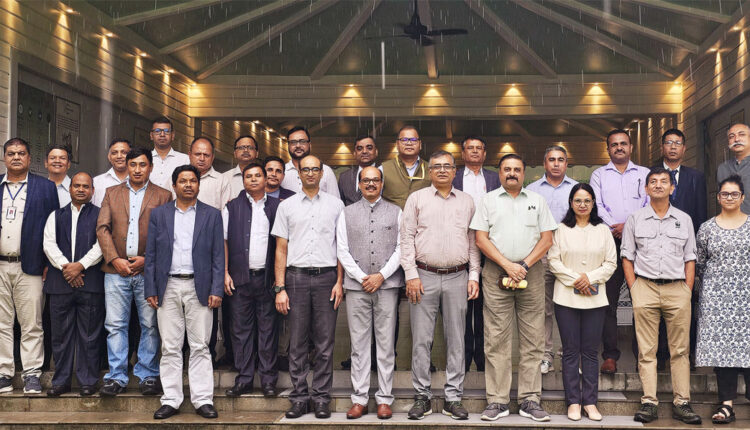Siliguri: Illicit wildlife trade is a serious threat to the wild fauna and flora. South Asia, as a region, is rich in biodiversity and thus a crucial source for wildlife contrabands, and a transit hub for illegal wildlife trade.
To address issues and challenges towards curbing illegal trade in wildlife species in South Asia, enforcement officials from India and Nepal came together for a one-day bilateral meeting in Siliguri, West Bengal today. Thirteen officials from Nepal and twelve officials from India are participating in this meeting that has been organised by TRAFFIC’s India Office and WWF-India, in collaboration with the South Asia Wildlife Enforcement Network (SAWEN) and Wildlife Crime Control Bureau (WCCB), the Government of India, under a regional project – Countering wildlife trafficking in South Asia – launched last year with funding support from the US Government.
Dr Dipankar Ghose, Senior Director, Biodiversity Conservation, WWF-India and Interim Head of TRAFFIC’s India Office said, “India-Nepal border areas hold transboundary landscapes like the Terai Arc, the Dooars – North Bengal and Kanchenjunga landscape. These are home to many protected and threatened wildlife species such as the tigers, elephants, and rhinos in the plains, and red pandas in the mountains that move freely between the two countries in the landscapes. Unfortunately, these porous borders also allow for the movement of poachers, wildlife article traders, and wildlife contraband. Therefore timely collaboration among enforcement agencies and their officers across the borders is crucial to curbing illegal wildlife trade and securing the region’s natural resources”.
Shri H.V. Girisha IFS, Additional Director, WCCB added, “Wildlife crime is an organised crime that involves large networks of poachers and smugglers operating across borders. Therefore to break this nexus best enforcement practices and intra-country operations need to be deployed. This bilateral meeting focuses on identifying gaps and developing implementable solutions to protect the wildlife of South Asia and beyond”.
Mr Debal Ray, Chief Wildlife Warden, West Bengal said, “Surveillance of the Siliguri corridor in West Bengal is of immense importance in controlling the movement of wildlife contrabands. Located close to the international borders, this route is attractive to the wildlife traffickers of not only native species but also exotic ones. Therefore it is important to strengthen actions in the region which is not possible without establishing robust mechanisms for sharing information among the neighbouring countries and conducting joint actions. We are hopeful that such bilateral meetings will help to bridge these gaps”.
“The South Asia Wildlife Enforcement Network (SAWEN), as an inter-governmental wildlife law enforcement support body, brings agencies from the member countries on a common platform to address issues and challenges in combating wildlife crime and to find solutions which can be implemented by the countries. This bilateral meeting has been organised to promote transborder cooperation and coordination by strengthening existing mechanisms of collaborative efforts. This will ultimately help to achieve the objectives of SAWEN”, said Shri Pradeep Bhattarai, Senior Environment Officer, SAWEN.
The bilateral meeting in Siliguri focuses on sharing insights into the legal and enforcement mechanisms and the best practices as deployed by India and Nepal; implementation of the Convention on International Trade in Endangered Species of Wild Fauna and Flora (CITES); and challenges related to curbing illegal trade of live wildlife species; and wildlife forensics for curbing wildlife crime.
The regional project – Countering wildlife trafficking in South Asia –aims to build on the knowledge and experience of enforcement officials in South Asian countries for curbing illegal wildlife trade and will strengthen the foundation for future cooperation and collaboration. The project will support officials in Bangladesh, Bhutan, India, Nepal, and Sri Lanka and will help strengthen SAWEN as the primary regional organisation combating wildlife trafficking.


Comments are closed.